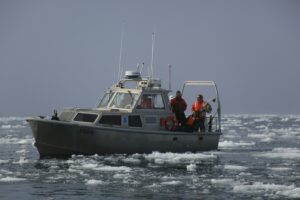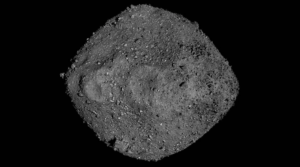
After decades of Arctic sea ice getting faster and more hazardous for transport, models suggest a dramatic reversal is coming, York U study finds
Will ice floating in the Arctic Ocean move faster or slower over the coming decades? The answer to this question will tell us whether marine transportation can be expected to get more or less hazardous. It might also have important implications for the rate of ice cover loss, which is hugely consequential for Northern Indigenous communities, ecosystems, and the global climate system.

